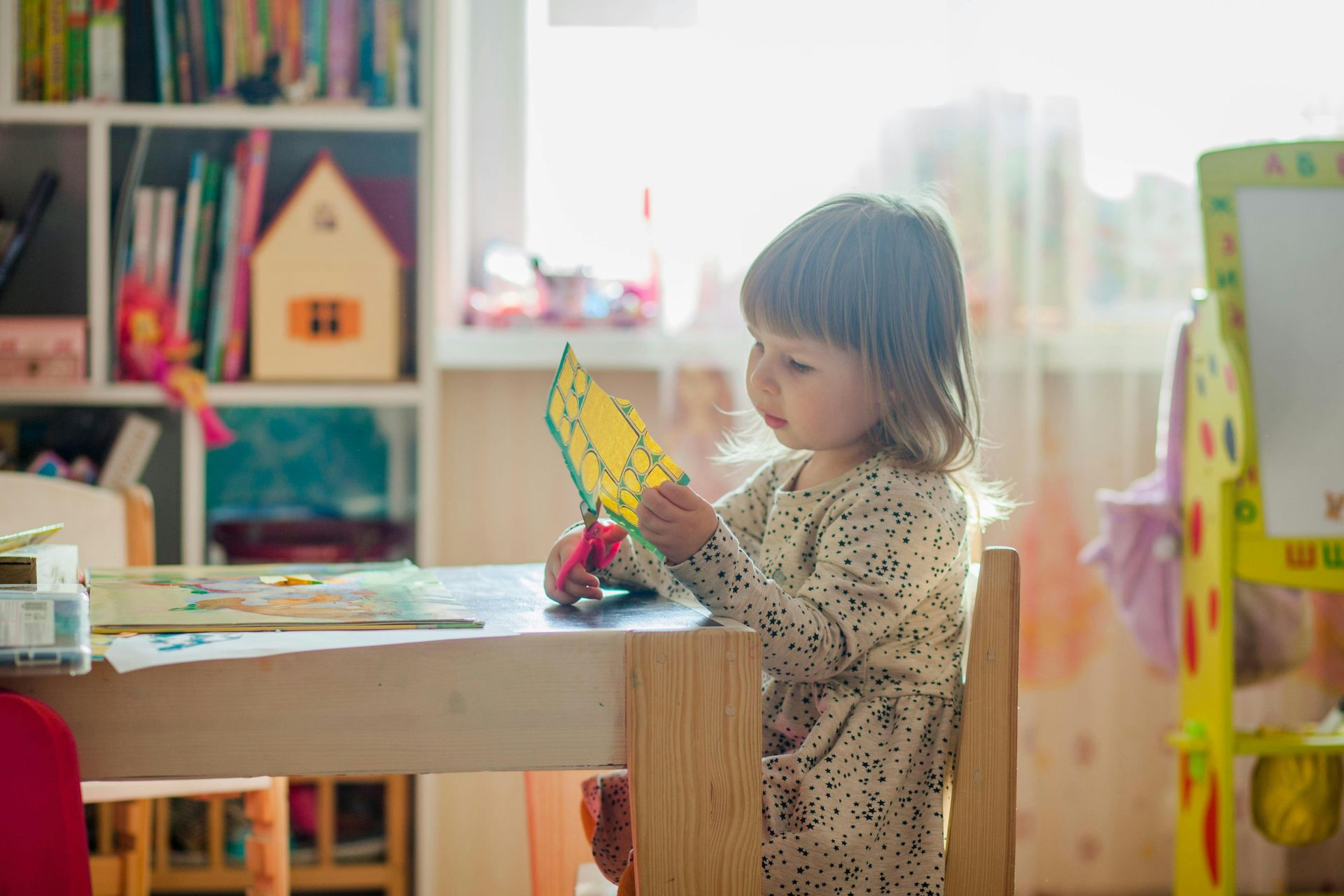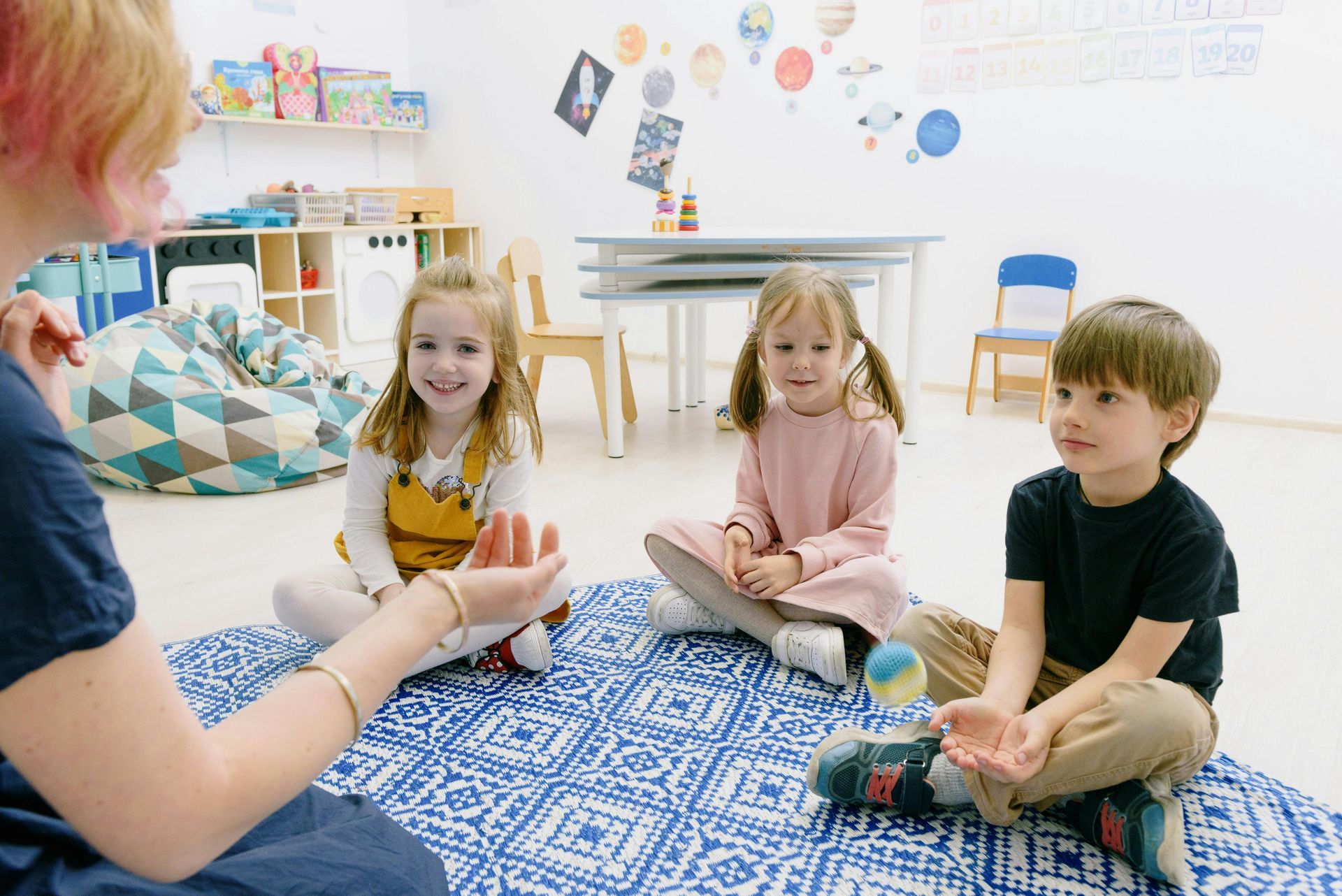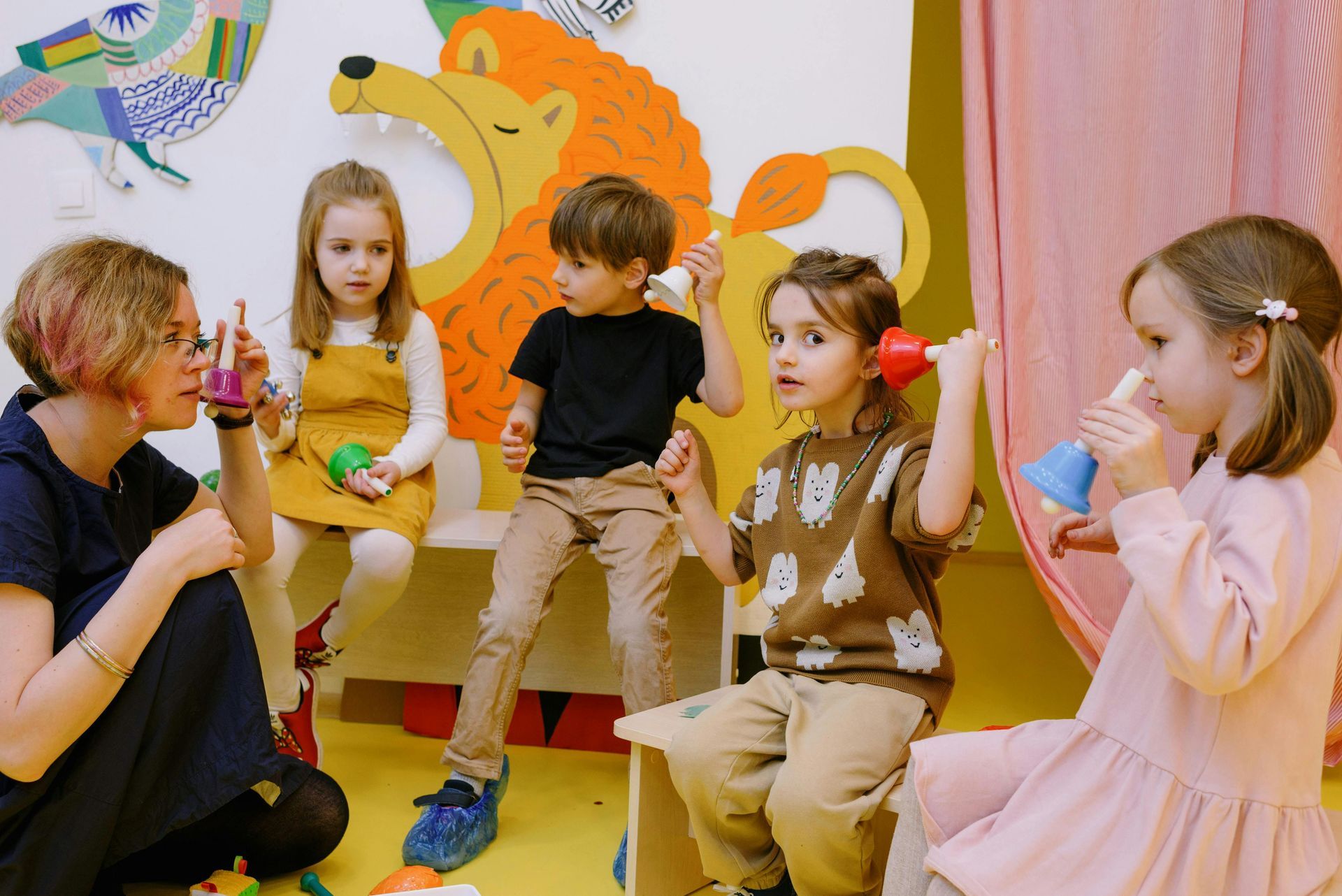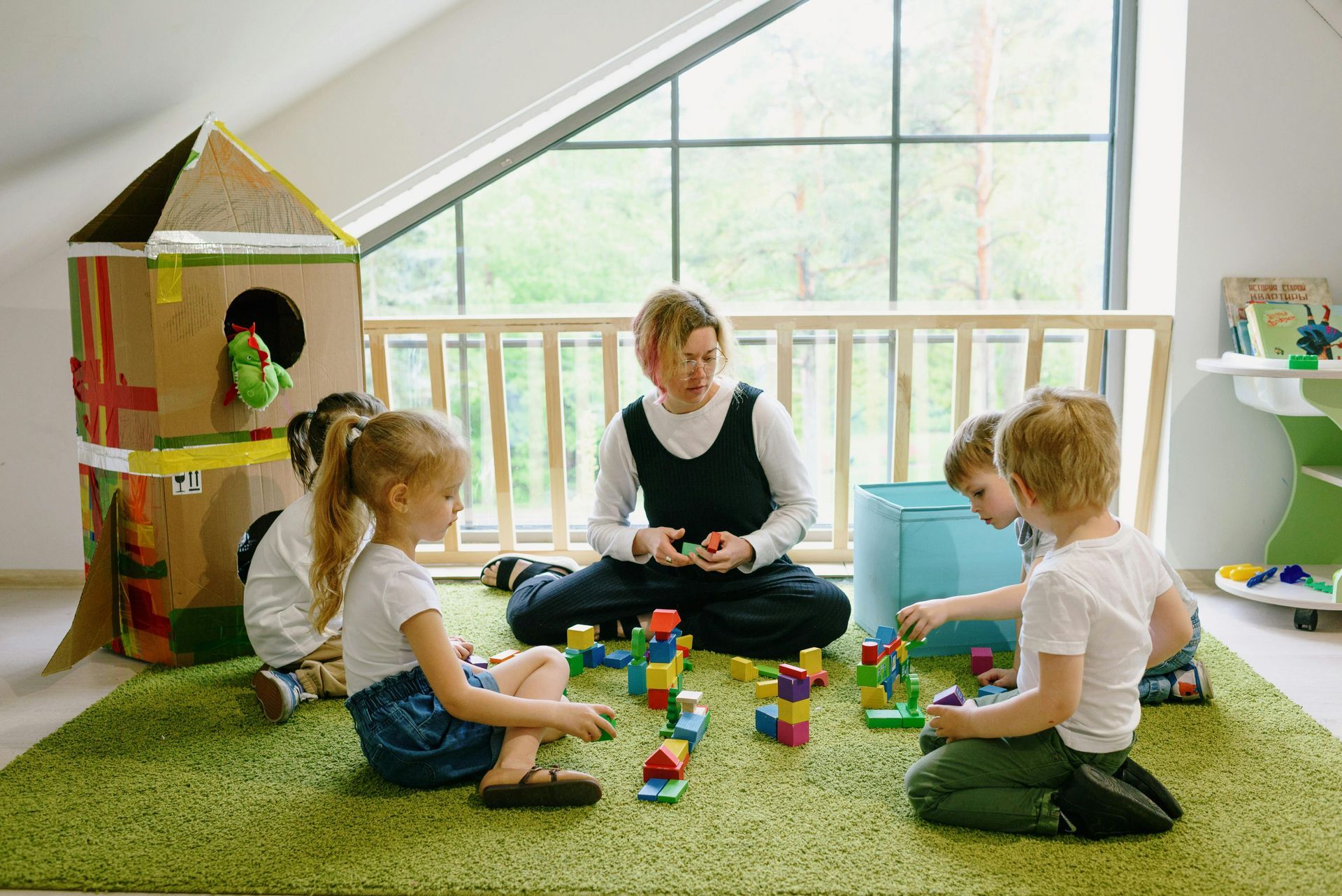Building Strong Foundations: The Importance of Early Childhood Education in Shaping Future Success

Early childhood education plays a vital role in shaping a child’s future. From laying the groundwork for cognitive development to fostering social and emotional growth, the experiences children have during their formative years can significantly influence their academic, personal, and professional outcomes later in life. At Playtime Academy, we understand that the early years are crucial for setting the stage for success, and we take pride in providing a nurturing environment where children can thrive.
Why Early Childhood Education Matters
Research shows that children who have access to high-quality early childhood education are more likely to experience success in school and beyond. Here’s why:
- Cognitive Development: The brain develops rapidly during the early years, and the learning experiences children have during this time lay the foundation for all future learning. Early childhood education programs provide opportunities for children to engage in activities that build essential cognitive skills such as problem-solving, critical thinking, and creativity.
- Social and Emotional Development: Preschool is one of the first places where children learn how to interact with their peers and develop social skills. Through activities such as group play and cooperative learning, children practice important skills like sharing, empathy, communication, and conflict resolution.
- Language Development: Early childhood education is a key factor in language acquisition. Children exposed to rich language environments, including storytelling, songs, and interactive conversations, develop a strong vocabulary and communication skills that serve as the foundation for literacy and academic success.
- Building Self-Esteem and Confidence: Positive early learning experiences boost children’s self-esteem and help them build confidence in their abilities. When children are given opportunities to succeed, make decisions, and overcome challenges, they develop a sense of autonomy and pride in their accomplishments.
The Impact of Play-Based Learning
At Playtime Academy, we embrace the power of play-based learning as a central approach in our curriculum. Play is more than just fun—it's a critical tool for learning. Through play, children explore, discover, and make sense of the world around them. Here’s how play-based learning supports early childhood development:
- Encourages Creativity and Imagination: When children engage in imaginative play, they learn to think creatively and use their imagination. Whether they’re building a castle out of blocks or pretending to be animals, play encourages innovation and creative thinking.
- Promotes Problem-Solving Skills: During play, children often encounter challenges that require them to think critically and find solutions. For example, when building with blocks, a child might need to figure out how to make their structure more stable or find a way to balance objects. These problem-solving experiences strengthen cognitive skills that are essential for academic success.
- Develops Fine and Gross Motor Skills: Play allows children to practice and refine their motor skills. Activities like running, jumping, and climbing promote physical development, while tasks such as drawing, cutting, and building with small objects improve fine motor coordination.
- Teaches Cooperation and Teamwork: In group play, children learn how to work together, negotiate, and compromise. These interactions help them develop social skills and a sense of teamwork, which are valuable not only in school but also in life.
The Role of Teachers in Early Childhood Education
At Playtime Academy, we believe that teachers play a crucial role in creating a positive, engaging learning environment. Our educators are trained to provide the support and guidance children need to grow and succeed. Here’s how our teachers make a difference:
- Building Strong Relationships: Teachers at Playtime Academy take the time to get to know each child and build strong, trusting relationships. This helps children feel safe and supported, which is essential for their emotional development and academic success.
- Creating a Stimulating Learning Environment: Our classrooms are designed to stimulate curiosity and promote active learning. From hands-on activities to interactive lessons, our teachers create environments where children can explore, experiment, and learn through play.
- Individualized Attention: Every child is unique, and our teachers are dedicated to providing individualized attention to ensure each child’s needs are met. Whether a child requires extra support in a particular area or thrives in a specific skill, our educators tailor their approach to maximize each child’s potential.
- Encouraging Independence: Teachers at Playtime Academy foster independence by providing children with opportunities to make choices, solve problems, and take on responsibilities. This builds confidence and self-reliance, empowering children to take ownership of their learning.
Parent Involvement in Early Childhood Education
Parents are a child’s first teachers, and their involvement in early childhood education is essential for a child’s success. At Playtime Academy, we value the partnership between parents and teachers. Here’s how parents can be actively involved in their child’s early education:
- Open Communication: Regular communication between parents and teachers helps ensure that children’s needs are being met both at home and in school. Parent-teacher conferences, newsletters, and daily updates provide valuable insights into a child’s progress and development.
- Supporting Learning at Home: Parents can extend the learning from school into the home environment by reading with their child, engaging in creative play, and encouraging curiosity. Small activities like counting objects, identifying colors, and singing songs can reinforce concepts learned in the classroom.
- Participating in School Activities: Parents are encouraged to attend school events, field trips, and volunteer opportunities. Active involvement in school activities helps build a strong sense of community and shows children that learning is valued both at home and at school.
The Long-Term Benefits of Early Childhood Education
The benefits of early childhood education extend far beyond the preschool years. Research has shown that children who attend high-quality early education programs are more likely to:
- Perform Better in School: Children who receive early education are more likely to excel academically, with improved literacy and numeracy skills compared to their peers who did not attend preschool.
- Develop Stronger Social Skills: Early childhood education helps children build essential social skills such as cooperation, conflict resolution, and communication, which are crucial for success in school and later in life.
- Experience Greater Career Success: Studies have shown that children who attend high-quality early childhood education programs are more likely to graduate from high school, pursue higher education, and enjoy career success.
- Have Better Health Outcomes: Early education programs that promote healthy habits and social-emotional development have long-term benefits for physical and mental health, including lower rates of obesity, mental health issues, and substance abuse.
Learn how a strong start in early education and the development of emotional intelligence go hand in hand in shaping a child's future in our blogs on the importance of early childhood education and how emotional intelligence shapes early childhood development.
Conclusion: Investing in the Future of Our Children
Early childhood education is an investment in the future. By providing children with a solid foundation of cognitive, social, emotional, and physical development, we are setting them on the path to lifelong success. At Playtime Academy, we are committed to providing the highest quality early education, ensuring that every child has the tools they need to grow, learn, and thrive.











